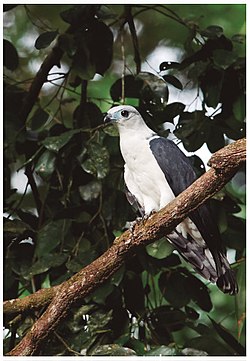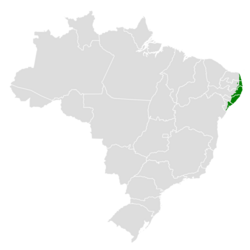| Leptodon | |
|---|---|
 | |
| Grey-headed kite (Leptodon cayanensis) | |
| Scientific classification | |
| Domain: | Eukaryota |
| Kingdom: | Animalia |
| Phylum: | Chordata |
| Class: | Aves |
| Order: | Accipitriformes |
| Family: | Accipitridae |
| Subfamily: | Perninae |
| Genus: | Leptodon Sundevall, 1836 |
| Type species | |
| Falco cayennensis [1] Gmelin, 1789 | |
| Species | |
| |
Leptodon is a genus of birds of prey. Its two members are similar, with a grey head, black upperparts and white underparts.






